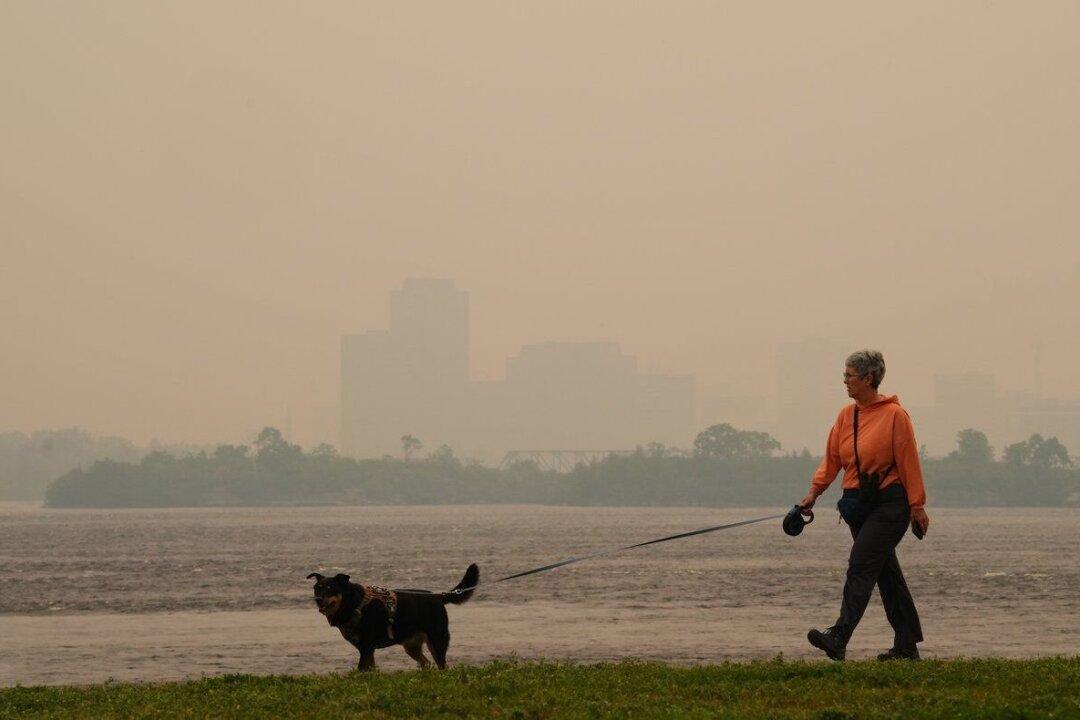Officials in Canada warned that wildfire smoke could again inundate parts of the United States after thick reddish smoke engulfed New York City and other parts of the northeastern U.S. last week.
Smoke from wildfires burning in Quebec, Canada, is still impacting several major U.S. cities, including New York City, on Monday. An air quality monitoring index shows that New York City is seeing “moderate” air pollution as of Monday afternoon.





